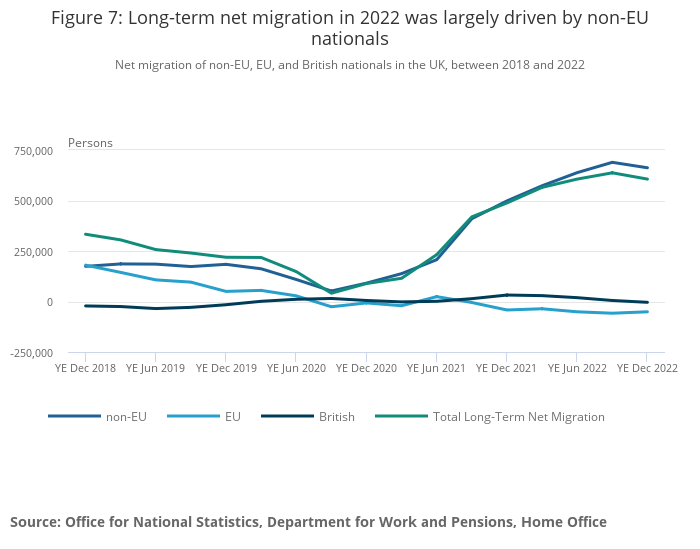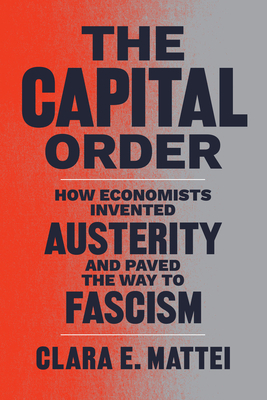
Inflation stalks the modern economy, and the public really doesn’t like it. Meanwhile public services are under stress, demand for welfare rises, and taxes are as unpopular as ever. Increasing public spending when the economy’s supply side is stretched either leads to more inflation or more taxes. How to square the circle? More immigration? That isn’t very popular either, and puts housing under stress. Economic growth? But that means facing severe headwinds, from the popular demand for more leisure (aka retirement), to NIMBYism, and resistance to globalisation. Public policy is a tough gig these days if you want to solve problems rather than just stir up resentment. But one thing pretty much everybody can agree on is that it’s a good idea to get better value for public spending. But how?
Back in the 1980s when I was in accountancy training I read up about value for money auditing, which was coming into fashion then, as accountants sought to expand their remit. The textbook said that value for money should be viewed at three levels: the three Es. First, Effectiveness: is the spending achieving the results it was meant to? Second, Efficiency: could the outputs be achieved with fewer inputs? And third, Economy: could those inputs be bought at a lower cost? This remains an excellent framework for looking at value for money. As you progress along this chain, though, the scope of questioning gets narrower, and the questions become easier to answer. Which means that too often the analysis gravitates towards Economy before the question of Effectiveness has been properly dealt with. In his recent speech on value for money, the Head of the National Audit Office, Gareth Davies, picked five themes for the achievement of better value for money, focused on Efficiency and Economy – Effectiveness hardly got a look in. The five themes were: large infrastructure projects, asset management, procurement, digital transformation and reducing fraud, error and tax evasion.
At the Economy level, lets’s look at two issues in particular to get a feel for the difficulties of focus on the third E – pay and procurement. Pretty much every time some senior executive is asked for ideas on value for money, they come up with the idea of more centralised procurement, so that government can drive a hard bargain with suppliers. This is a common idea amongst leaders of big organisations, who need to keep promoting the idea that size brings benefits, and that their massive salaries are just a rounding adjustment in the great scheme of things. And it makes sense in the right context. When buying drugs from massive pharmaceutical companies, it is best to do this a big centralised way, as the NHS does, or otherwise the suppliers will take advantage. But there is a dark side. When I worked for a big multinational bank as a unit finance director, I remember being hauled into a meeting at head office alongside my counterparts in other parts of the organisation, in which we were instructed to refer all significant purchasing decisions to the centralised purchasing department. The message was delivered by the head of that department, who showed no evident expertise beyond bullying, and it was received in a silence that bespoke passive resistance. This was yet more bureaucracy that was going make getting things done even harder. I applied for voluntary redundancy not long after. One story in particular always comes to my mind to illustrate the problems of centralised procurement. A hospital bought surgical gloves in packs of 50 as part of its procurement deal, but the hospital had no system for dealing with partially used packs. It was commonplace for staff to take a pack from stores, extract what they needed and discard the rest.
Things aren’t any better at the level of public sector pay. The government, in cahoots with unions, likes to negotiate pay levels centrally. The Treasury is in control of the government side, and clearly feels that its monopoly buying power can be used to keep pay rates down. It is generally right, which is one reason that public services are wading through a series of disruptive strikes as employees try to improve their pay without leaving and getting a better paid job elsewhere (perhaps in a another part of public service…). The particular needs of particular services in particular places is lost. With high staff turnover generating lots of additional cost, as well as staff shortages affecting performance, the actual value for money of this approach is very much open to question, never mind the strikes. Economy defeats Efficiency and Effectiveness.
To make real progress on value for money, you really have to get to grips with that first E. But there are a number of problems. One of the bigger ones is that we have divided public services up into so many fiefdoms that the issues aren’t being seen in the round. Mental health, physical health, housing, benefits and criminal justice are very clearly bound up with each other – but they are usually the responsibility of separate agencies and strategic cooperation between them is beyond anybody’s pay grade. The further up the chain of need you can define effectiveness, the more impact you are likely to have. The best way to secure value for money in many services is to find ways of preventing people getting into trouble, and so keeping them out of hospitals, police stations, courts and so on. But that’s nobody’s job, and so the question doesn’t get asked. It’s easier to try to keep pay down and order surgical gloves in packs of 50.
I can think of two attempts to break this deadlock. In the last years of the last Labour government it was decided that multiple agencies should get to together to focus on the needs of individual children who were at risk. It was called “Team Around a Child”. Alas it wasn’t clear who was accountable, and it often meant lots of unproductive meetings – though I suspect this was still worth doing. The Conservative-Liberal Democrat coalition that replaced Labour swept the system away as part of their austerity policies. But the new Prime Minister, David Cameron, was struck by a particular insight that a small number of individuals (a few hundred, I think) were driving an utterly disproportionate amount of work as they kept circling the various agencies. What if somebody was to focus on their individual cases and try to resolve the issues instead of passing the parcel? He managed to get an initiative going on this, but it soon collapsed amid wrangles over accountability and measuring performance.
The Coalition, in fact, was chasing up a blind alley in its attempt to radically improve value for money. What it tried to do was redefine what needed to be done, split it into digestible chunks and put these out to tender to social enterprises and private businesses, linked to clear performance measures, with, in some cases, incentives to improve measured efficiency. This led to a big drive towards the third E, with rapid de-skilling in many areas, such as probation services and social work. The first E quickly collapsed. The system could not deal with complexity, and multi-agency coordination (which was a lot of what those sacked highly-skilled workers had been doing) went out of the window. Only the consultants won out.
There is a very important lesson to be drawn from this. Public sector work is very different from that of the private sector, and often needs to be approached in a very different way. The private sector can walk away from the hard cases, and often that is a critical business strategy. If the costs of dealing with a particular customer are too high, you tell them to go somewhere else. It is the other way round with public services. For them, if you deal with the difficult cases well, the rest falls into place. Walking away might solve a problem in the short term, but it creates a bigger one later. This requires a completely different way of looking at the problem.
I have had the opportunity of seeing this first hand as a school governor in primary schools – and English primary schools are one of the most effective and efficient public sector institutions around. There is a growing issue of dealing with children with special needs – arising from autism or dyslexia, for example. This does attract additional funding – after succeeding in an arduous hurdle race to document the needs and interventions required. Some schools (and it’s been a big issue here in rural East Sussex) deal with this by trying to avoid special needs children. Head teachers develop skills in identifying such children and encouraging them to go elsewhere. Sometimes the schools that took a stronger ethical line were overwhelmed with pupils discouraged elsewhere, suffered a deterioration in their reputation and were eventually forced to close, as parents took their children elsewhere. But the three headteachers it has been my privilege to work with (two of them in Lambeth, not here) have taken an entirely different attitude. They see it as their duty to help all the children that come to them, if they can, whatever their needs. It is very hard, but they get a huge amount of satisfaction from it. Indeed they feel that it helps all the children if multiple needs can be dealt with in the same class. These headteachers and the teams they lead could do so much more if they had more resources to play with.
The reason why state primary schools do so well is because they operate with the right balance of focus on effectiveness, accountability and high professional and ethical standards. This was not always so, and it has been a long journey over the last thirty years or so. It helps enormously that they are relatively small and self-contained. It also helps that it is self-evident that the service needs to focus on the needs of particular children, rather than the ever-changing cast of characters that pass through hospitals, law courts and so on. There is plenty more work to do, but the progress has been huge.
How to progress? I think you have to start with accountability. The problem currently is that people are often not accountable for the right things. I think it would help greatly if accountability was more focused on smaller geographical units, with political leaders in these smaller units being empowered to set the agendas of the various agencies in their areas. Of itself this does not guarantee progress: indeed the record of Britain’s devolved institutions is patchy at best. But it is hard to see how things can improve without it. We need to get used to the idea that effectiveness is about solving problems for people – rather than simply improving the throughput of particular services.
But the public service ethos is there, waiting to be tapped and directed constructively. New technological tools are available to help. I detect a lot of pessimism amongst political commentators that public services are doomed to gradually fail. That need not be the case – we just need to encourage and empower the right sort of leadership.






